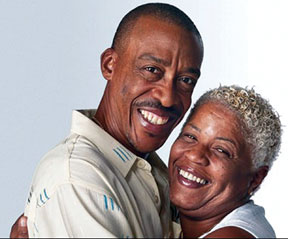
Currently, about one quarter of all people living with HIV, about 290,000 people, are aged 55 or over
National HIV/AIDS and Aging Awareness Day is a day to reflect on the successes and challenges of aging with HIV. Currently, about one quarter of all people living with HIV, about 290,000 people, are aged 55 or over. Most were infected at younger ages and have benefited from the improving medicines that can make living with HIV more like a traditional chronic disease. Compared with younger people, people over the age of 50 who are living with HIV are more likely to know their HIV status and to be virally suppressed.
Medical management of HV has simplified over the years, however, additional medical conditions associated with aging occur in older people already living with HIV. The management of multiple medical conditions requires awareness of the potential for drug interactions and a coordinated approach to care. As more people live into older ages with HIV, there are other areas that de-serve greater awareness and action:
- The possibility of increased HIV transmission among older people. People aged 55 and older represent about 5 percent of all new HIV infections in the United States. However, as more people age with HIV, transmission may also increase. HIV (and STD) prevention and sexual health information focused on older age groups is key to prevent further transmission.
- The importance of early diagnosis. Persons aged 50 and over accounted for almost one-fifth (18 percent) of new HIV diagnoses in 2013. Starting antiretroviral medications early in the course of HIV infection and staying on it can protect health and extend life – in some cases, nearly equal to that of someone without HIV. Routine HIV testing through age 65 per US Preventive Services Task Force guidelines, with more frequent testing for those at higher risk, is the best way to detect HIV as early as possible.
- Awareness of the social issues that can accompany living with HIV into older ages. Older people living with HIV often experience stigma and discrimination, which can lead to social isolation, loneliness, depression, minimize health-seeking behaviors, and create concerns with elder care situations.
- The need for caregivers trained to meet the needs of older people living with HIV. Assisted living centers, nursing homes, and home health care providers need caregivers educated in the specifics of caring for people living with HIV and other conditions. Additionally, institutions and providers should strive to create supportive environments free from stigma and discrimination to effectively serve the needs of the varied populations affected by HIV.
Work is underway in many of these areas. CDC offers resources for all people living with HIV through its campaign HIV Treatment Works, and features older people living with HIV in its anti-stigma campaign, Let’s Stop HIV Together. The Department of Health and Human Service’s Administration on Aging features a website with resources on HIV and Aging. All activities support the National HIV/AIDS Strategy’s call for broader HIV education across the lifespan—including among older Americans.
In just the past few years, we have seen the percentage of people living with HIV who are over the age of 65 increase 91 percent — from 32,000 people in 2007 to 61,200 people in 2012. These numbers will continue to increase as people continue to live longer and more healthily with HIV. This is first and foremost a success. But history will judge us not only on the advances in testing to help people learn of their infection and in medications to keep them healthy, but also in supporting people living with HIV a-cross their lifetimes. National HIV/AIDS and Aging Awareness day draws attention to this need, and it is up to all of us to meet it.
By Jonathan Mermin, M.D., M.P.H., Director, National Center for HIV/AIDS, Viral Hepatitis, STD, and TB Prevention, Centers for Disease Control and Prevention and Dr. Sean Cahill, PhD, Director, Health Policy Research, Fenway Institute


Be the first to comment